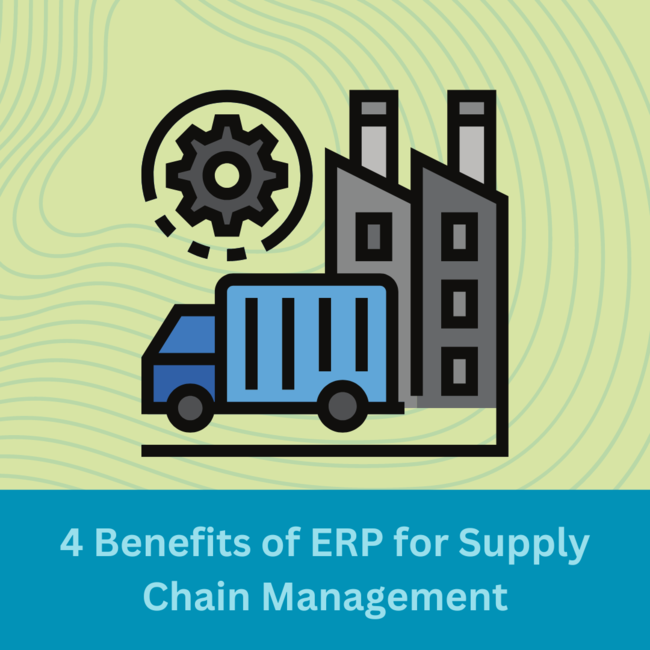4 Benefits of Custom ERP Software for Supply Chain Management

The key to the success of any business lies in effective supply chain management. And the latter can be achieved with custom ERP software. Implementing a custom ERP system into the supply chain offers many benefits, but before we get to them, let’s first review what the supply chain is.
What is the supply chain?
A supply chain is:
- A comprehensive process of manufacturing a product and delivering it to the end-consumer.
- A network of companies and people that work together to deliver a product.
The supply chain comprises everything from sourcing raw materials, making the product, marketing it and delivering it to the customer. Almost every manufacturer is looking to optimize their supply chain to reduce the production cycle and costs. One of the most effective ways to achieve this is to introduce custom ERP software into the process.
What Are the Benefits of Custom ERP Software for the Supply Chain Management?
Managing a supply chain is a complex task. Thankfully, the advance in the world of technology and custom software development has made supply chain management easier. Custom ERP software will improve your supply chain management and here’s how:
1. Speeds up the production cycle
The first thing businesses think of when looking to optimize their supply chain management is how to speed up the production cycle, because ultimately, it’s the speed of the production process that determines how fast a product can be delivered to the consumer.
2. Reduces costs
ERP supply chain management software helps companies save on operational costs which are especially noticeable in the long run. This is the primary reason why companies choose to implement custom ERP software into their supply chain management.
3. Improves communication
Making sure the information and data can be easily and quickly exchanged between the departments play a crucial role in ensuring effective supply chain management. Custom ERP software does an excellent job with that. It makes communication between employees and departments easy which is further reflected in the workflow.
4. Improves workflow management
A custom ERP system can help organize the supply chain workflow. Supply chain management is considered efficient when:
- Internal communications between the departments as well as the communication within the entire supply chain are fast and productive;
- The manufacturing process is as optimized as it can be;
- The company spends a minimum on managing its operations while drawing the maximum revenue;
- Customers get their orders on time.
Buying the software from a reliable and experienced provider is as important. When shortlisting custom software companies in Toronto, it’s important to take into account the industries they serve and whether they can prove their experience with a portfolio.
The takeaways
Supply chain custom ERP software can be a costly investment. However, if your ultimate goal is to effectively manage the availability of resources, fulfill orders timely, optimize the use of resources and reduce overall operational costs, there is no tool like custom ERP to achieve these goals.
